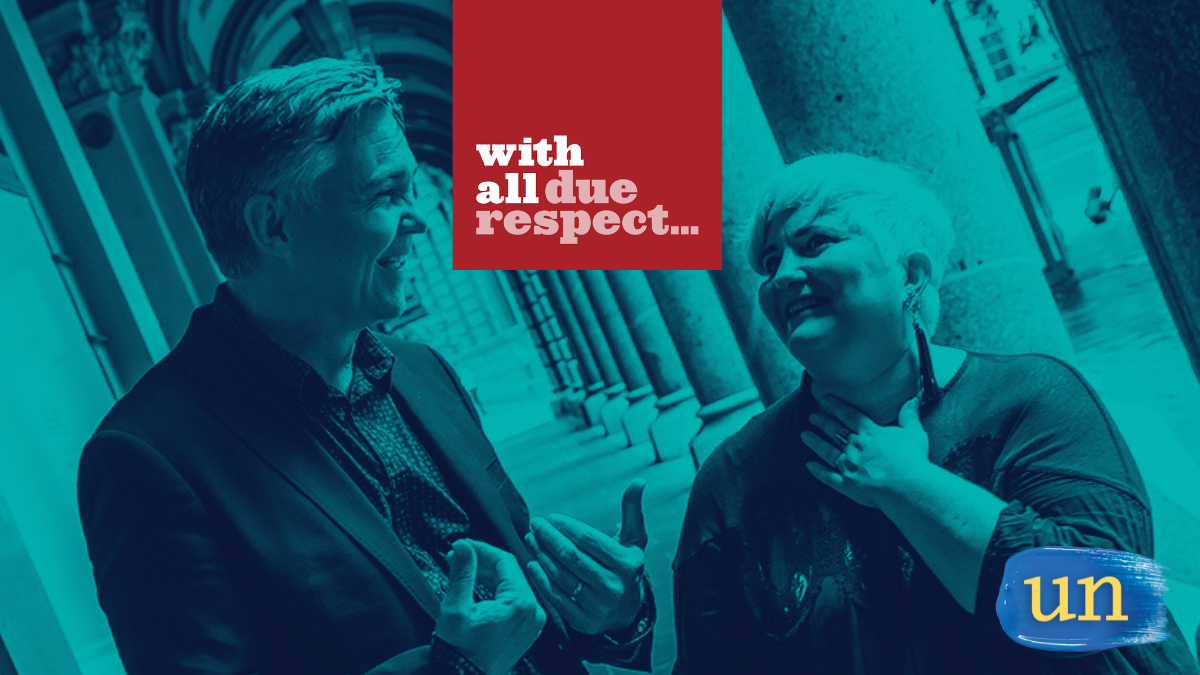Are we a persecuted people?
For arguments sake: where we take a debate, cut out the party politics and try to talk it out
Do Christians have a persecution complex? And are we being persecuted here in Australia?
Discussion around persecution has heated up since the Christchurch shootings where 50 Muslims were killed by a gunman who entered two mosques in March.
The conversation has ramped even further since Rugby player Israel Folau posted a message on Instagram with a list of people – including homosexuals – who would be going to hell if they didn’t repent, and has been found in high-level breach of the Rugby Australia code of conduct, which means he could lose his job (and $4 million contract).
Megan and Michael delve into the complexity of persecution, looking at the news reporting of Christian and Muslim persecution in different parts of the world and asking questions about whether there’s more to persecution than just other people not liking Christians.
And they set about answering the question: how can we show solidarity with the persecuted church while at the same time not playing the victim-hood game?
Mentioned in this segment:
- Open Doors World Watch List 2019: an annual report which lists the countries experiencing the worst persecution of Christians.
- Al Jezeera article looking at Muslim persecution, December 2018
You did WHAT now? Looking at what the other M has been up to
This episode, it’s Megan’s turn to read a few articles written by Michael.
The first is an article from 2013 on martyrdom (a subject on which Michael did his PhD) for ABC titled Christian martyrdom and modern identity: Against Candida Moss and Salman Rushdie.
The second, written for the Sydney Morning Herald was about the missionary John Chau, titled Like Jesus, US missionary accepted death as the price of reaching out. John Allen Chau who a young missionary who was killed by the North Sentinelese people on the isolated North Sentinel Island, seven hundred miles off the coast of mainland India in 2018.
Unfortunately, martyrdom has become tied up with suicide bombings, but Michael says Christian martyrdom isn’t just about dying for your group. It’s also about dying for your enemies. Christians died with words like ‘we honour and emperor and pray for him’.
Megan questions our use of the word ‘martyr’ and how we decide who is a martyr. Some in the media have called Israel Folau a martyr, for example, though not as much in Christian circles, observes Megan.
“Sometimes we use the idea of martyrdom’ in order to justify actions which may not be necessary, or may be unwise, or just wrong,” says Megan.
Michael reflects that what sometimes happened in the ancient church was people would look for ways to become a martyr. But that’s not right, says Michael. Martyrdom is not something we bring down on ourselves, it’s something that is in God’s sovereignty.
So what about John Allen Chau? Was he a martyr or did he just do something silly? Tune in to find out what Megan and Michael think.
Mentioned in this segment:
- Arthur Davis writing for Eternity: John Chau’s death raises serious questions
- The Exiled Preacher blog on martyrdom and the Christian life
- The Female Martyrs’ #MeToo Message, Lynn Cohick for Christianity Today
Marg and Dave: reviews from two people obsessed by stories but not always the same one
Megan and Michael watch Silence, a Scorsese film (you can stream it on SBS On Demand). Martyrdom and persecution is at the heart of this story.
Silence is a 2016 historical period drama film directed by Martin Scorsese with a screenplay by Jay Cocks and Scorsese, based on the 1966 novel of the same name by Shūsaku Endō. Silence is the third of Scorsese’s films about religious figures struggling with challenges of faith, following The Last Temptation of Christ and Kundun. The film follows the story of two Catholic missionaries (Andrew Garfield and Adam Driver) who travel to Japan in search of their missing mentor (Liam Neeson) – at a time when Catholicism was outlawed.
Michael has reviewed the film for the IFES Journal.
Less aggro, more conversation.
Is it even possible to have a deep discussion without it descending into chaos? Michael Jensen and Megan Powell du Toit think yes, and want to show the rest of us how to do it.
There’s plenty of things they disagree on: free will, feminism, where you should send your kids to school and what type of church you should go to. But there are also plenty of other things that they have in common. They want to talk about all these things with conviction. But they also want the conversation to be constructive. Tune in to find out if that’s possible.










































